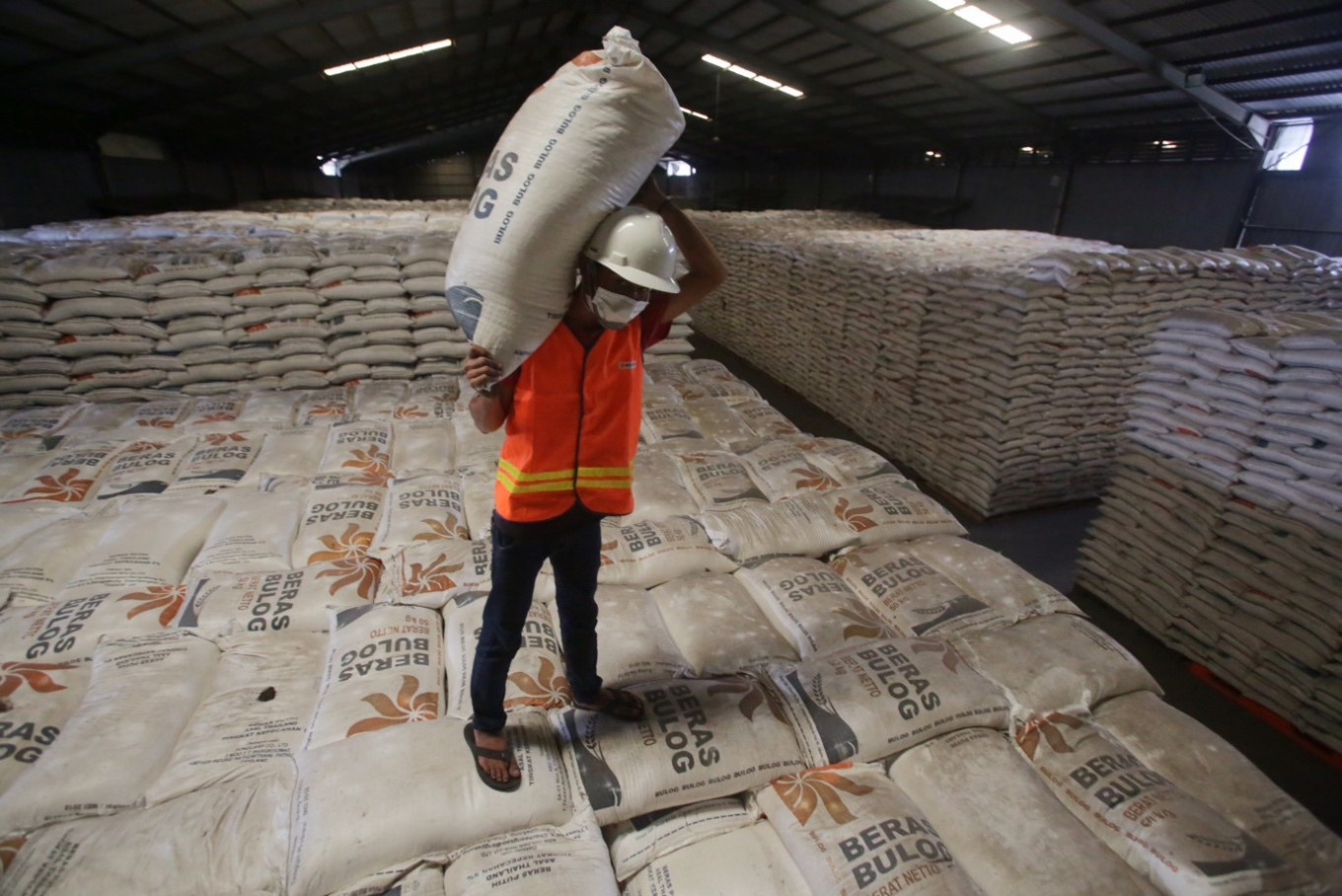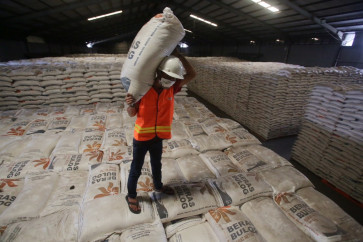Popular Reads
Top Results
Can't find what you're looking for?
View all search resultsPopular Reads
Top Results
Can't find what you're looking for?
View all search resultsAnalysis: Bulog to intervene rice market as prices soar, stocks deplete
Change text size
Gift Premium Articles
to Anyone
R
ice prices continue to increase in the beginning of the year despite controversial late importation of rice and market intervention by the State Logistics Agency (Bulog). Learning from the persistent price increase of rice, the National Food Agency (NFA) has tasked Bulog to conduct year-long market intervention to keep prices of this politically sensitive commodity in check.
Medium-grade rice prices increased to Rp 11,300 per kilogram in Jakarta on Jan. 10, 2023, up from Rp 10,000 level per kilo in December 2022 and was even below Rp 10,000 per kilo in November 2022. NFA chairman Arief Prasetyo Adi attributed the price increase to the less optimum market operation by Bulog and lower than expected volume of rice imports.
Importation of rice had been hampered by disagreement between Bulog and NFA that wanted to import rice due to rising prices and depleting stocks on one side and the Agriculture Ministry on the other side that disapproved the importation arguing that Indonesia had abundant stocks of rice held by farmers, rice millers and traders.
For the Agriculture Ministry, the importation could be seen as tarnishing the ministry’s efforts in maintaining Indonesia’s self-sufficiency in rice. Moreover, President Joko “Jokowi” Widodo was awarded in August 2022 by the Philippines-based International Rice Research Institute (IRRI) in recognition of Indonesia’s rice self-sufficiency for 2019-2021.
Despite the disagreement, the Trade Ministry finally approved in early December 2022 the importation of 500,000 tonnes of rice to replenish Bulog’s depleting stocks. Bulog then imported 200,000 tonnes of rice in December 2022 from Vietnam, Thailand, Myanmar and Pakistan and plans to import the remaining 300,000 tonnes in January and February. And yet, only 62,000 tonnes out of the 200,000 tonnes of imported rice reached Indonesia in December 2022.
As the arrivals of imported rice had been slow, Bulog used its depleting rice stocks for market operation. As a result, Bulog’s rice stocks fell from around 650,000 tonnes in early December 2022, far below the required 1.2 million tonnes in stocks, to only 327,000 tonnes in January.
Learning from the continuing rice price increase and the sharp depletion of Bulog’s stock, the NFA has tasked Bulog to conduct a year-long market intervention in 2023 to keep prices of this politically sensitive commodity in check. Bulog is told to restore its rice stock to 1.2 million tonnes, as required by the government, by absorbing a total of 2.4 million tonnes of rice from the domestic market this year. The remaining amount will be used for rice market operation.



















